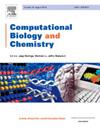A knowledge graph approach to drug repurposing for Alzheimer’s, Parkinson’s and Glioma using drug–disease–gene associations
IF 2.6
4区 生物学
Q2 BIOLOGY
引用次数: 0
Abstract
Drug Repurposing gives us facility to find the new uses of previously developed drugs rather than developing new drugs from start. Particularly during pandemic, drug repurposing caught much attention to provide new applications of the previously approved drugs. In our research, we provide a novel method for drug repurposing based on feature learning process from drug–disease–gene network. In our research, we aimed at finding drug candidates which can be repurposed under neurodegenerative diseases and glioma. We collected association data between drugs, diseases and genes from public resources and primarily examined the data related to Alzheimer’s, Parkinson’s and Glioma diseases. We created a Knowledge Graph using neo4j by integrating all these datasets and applied scalable feature learning algorithm known as node2vec to create node embeddings. These embeddings were later used to predict the unknown associations between disease and their candidate drugs by finding cosine similarity between disease and drug nodes embedding. We obtained a definitive set of candidate drugs for repurposing. These results were validated from the literature and CodReS online tool to rank the candidate drugs. Additionally, we verified the status of candidate drugs from pharmaceutical knowledge databases to confirm their significance.

利用药物-疾病-基因关联对阿尔茨海默病、帕金森病和神经胶质瘤进行药物再利用的知识图谱方法。
药物再利用使我们能够找到以前开发的药物的新用途,而不是从头开始开发新药。特别是在大流行期间,药物再利用引起了人们的极大关注,为以前批准的药物提供了新的应用。在我们的研究中,我们提供了一种基于药物-疾病-基因网络特征学习过程的药物再利用新方法。在我们的研究中,我们的目标是寻找可用于神经退行性疾病和胶质瘤的候选药物。我们从公共资源中收集了药物、疾病和基因之间的关联数据,并主要研究了与阿尔茨海默病、帕金森病和神经胶质瘤疾病相关的数据。通过集成所有这些数据集,我们使用neo4j创建了一个知识图,并应用了可扩展的特征学习算法node2vec来创建节点嵌入。这些嵌入后来被用于通过发现疾病和药物节点嵌入之间的余弦相似性来预测疾病与其候选药物之间的未知关联。我们获得了一套确定的候选药物用于重新利用。通过文献和CodReS在线工具对候选药物进行排名,验证了这些结果。此外,我们从药学知识数据库中验证候选药物的状态,以确认其重要性。
本文章由计算机程序翻译,如有差异,请以英文原文为准。
求助全文
约1分钟内获得全文
求助全文
来源期刊

Computational Biology and Chemistry
生物-计算机:跨学科应用
CiteScore
6.10
自引率
3.20%
发文量
142
审稿时长
24 days
期刊介绍:
Computational Biology and Chemistry publishes original research papers and review articles in all areas of computational life sciences. High quality research contributions with a major computational component in the areas of nucleic acid and protein sequence research, molecular evolution, molecular genetics (functional genomics and proteomics), theory and practice of either biology-specific or chemical-biology-specific modeling, and structural biology of nucleic acids and proteins are particularly welcome. Exceptionally high quality research work in bioinformatics, systems biology, ecology, computational pharmacology, metabolism, biomedical engineering, epidemiology, and statistical genetics will also be considered.
Given their inherent uncertainty, protein modeling and molecular docking studies should be thoroughly validated. In the absence of experimental results for validation, the use of molecular dynamics simulations along with detailed free energy calculations, for example, should be used as complementary techniques to support the major conclusions. Submissions of premature modeling exercises without additional biological insights will not be considered.
Review articles will generally be commissioned by the editors and should not be submitted to the journal without explicit invitation. However prospective authors are welcome to send a brief (one to three pages) synopsis, which will be evaluated by the editors.
 求助内容:
求助内容: 应助结果提醒方式:
应助结果提醒方式:


